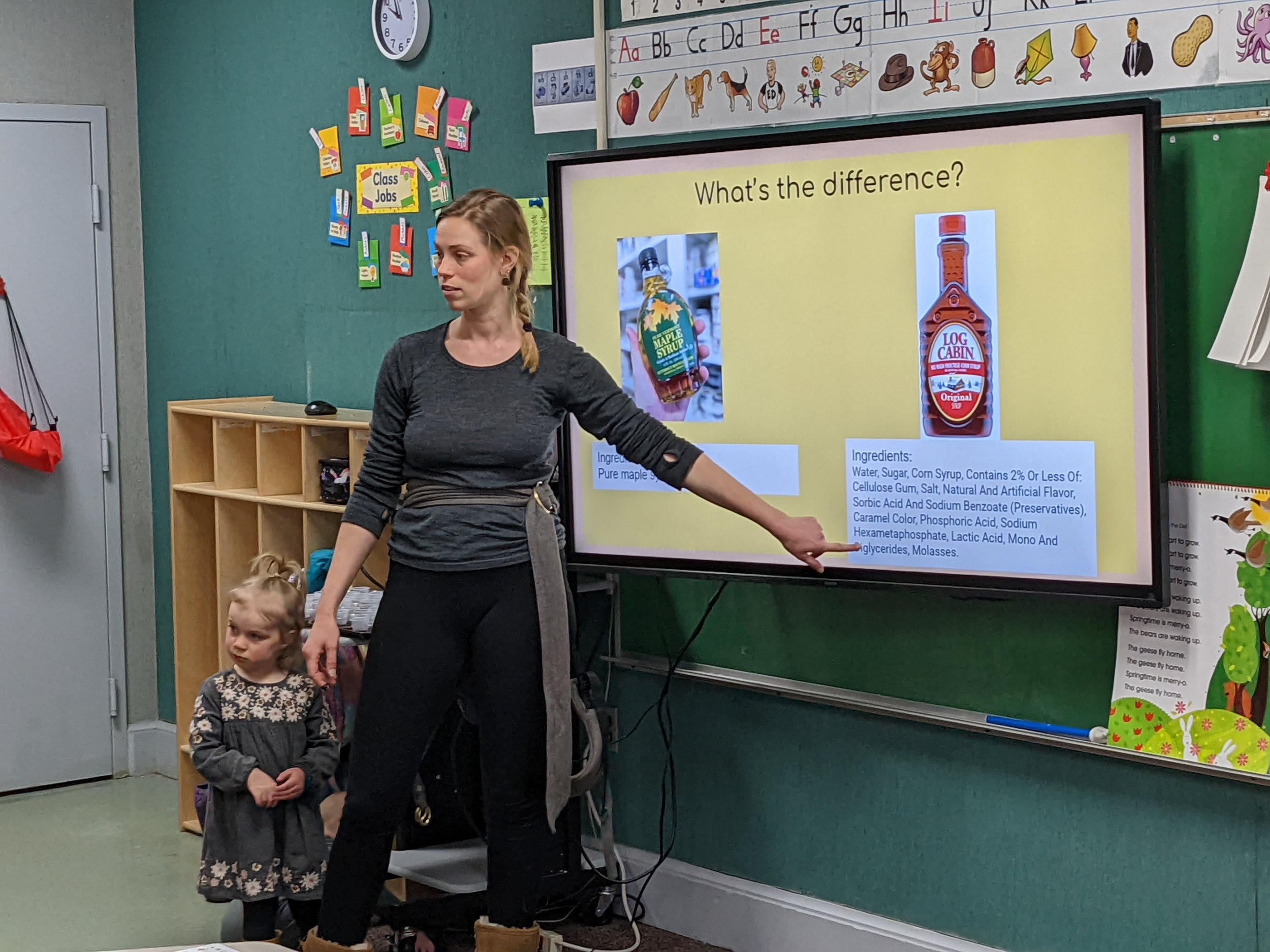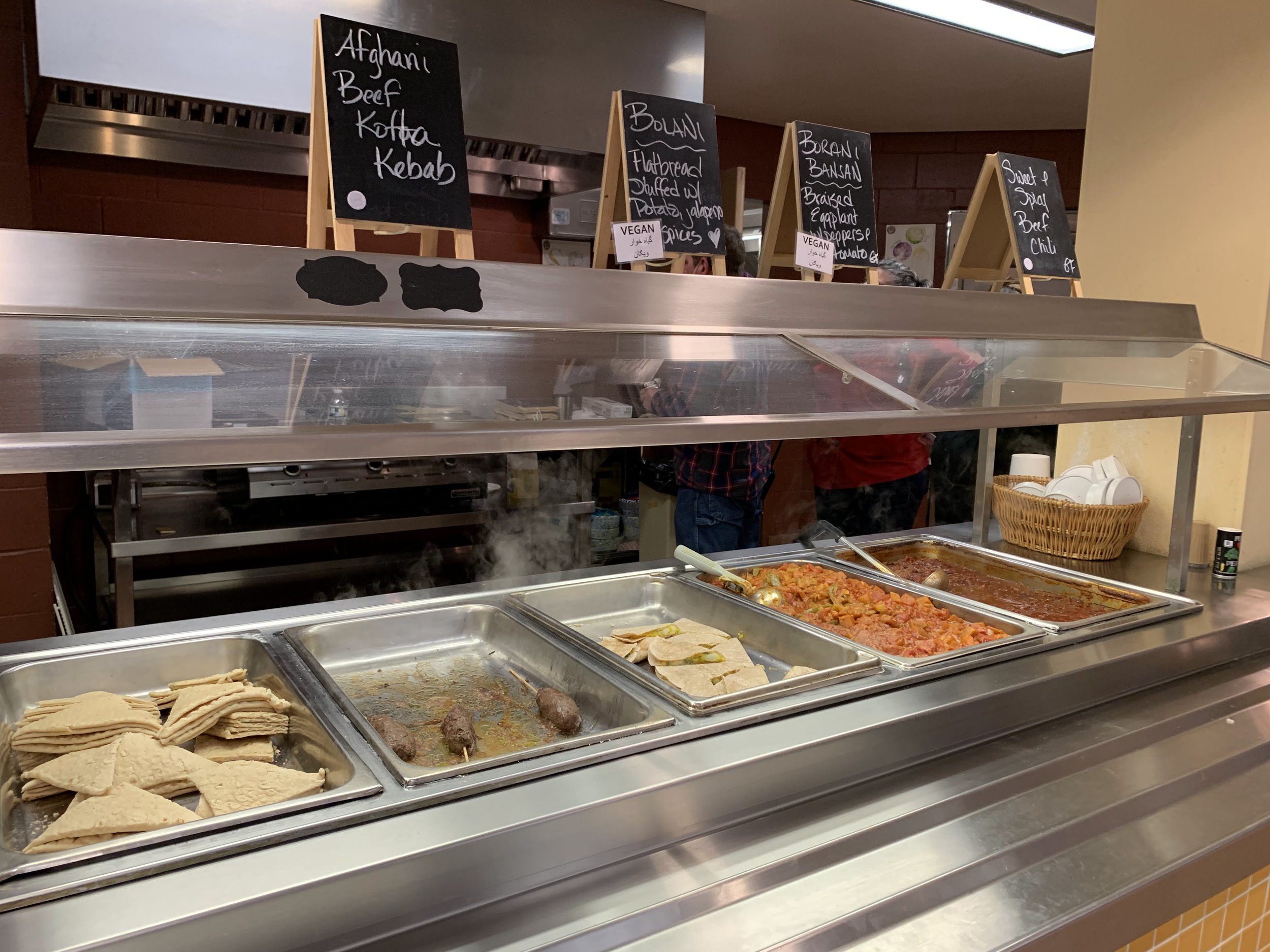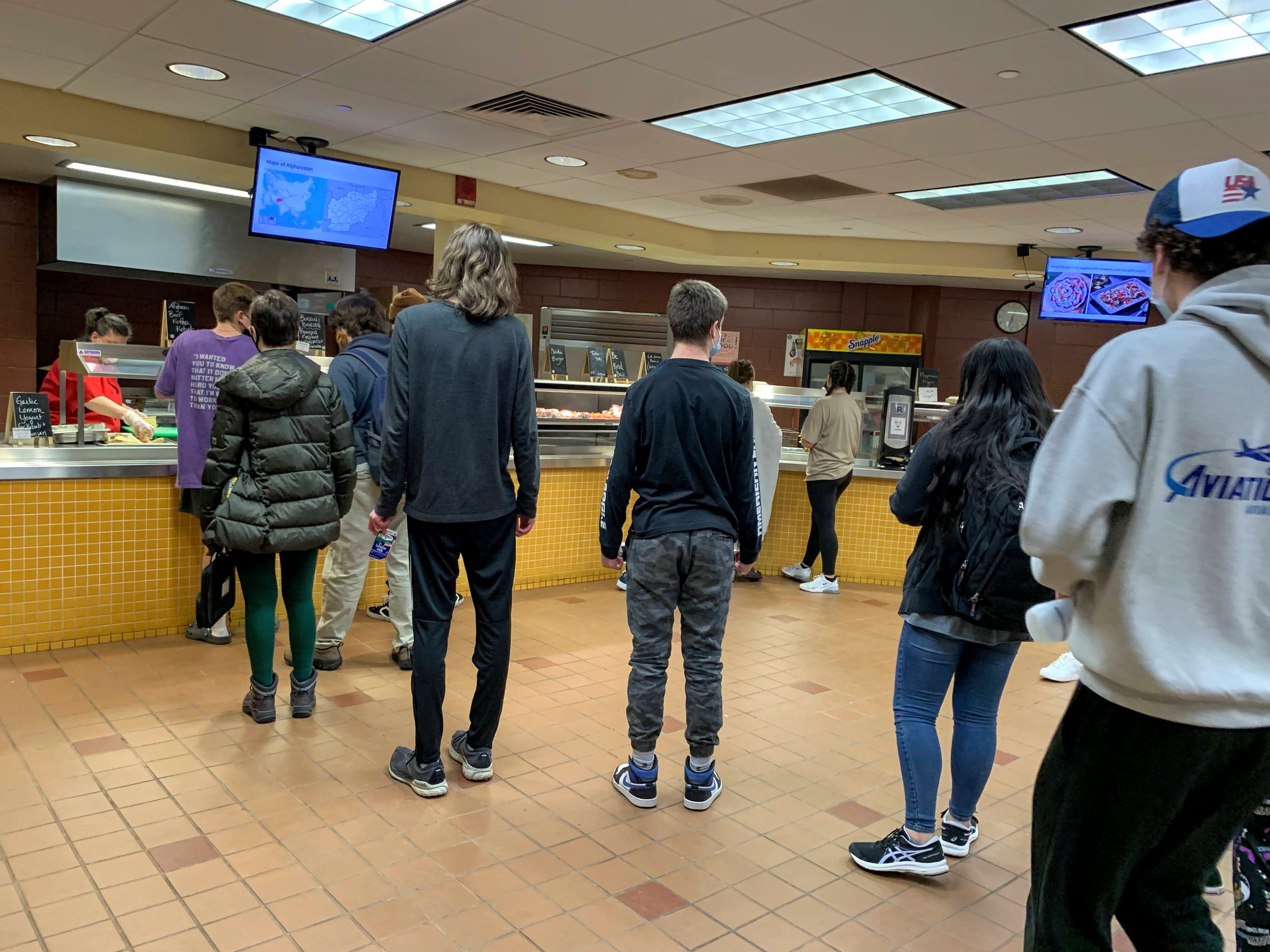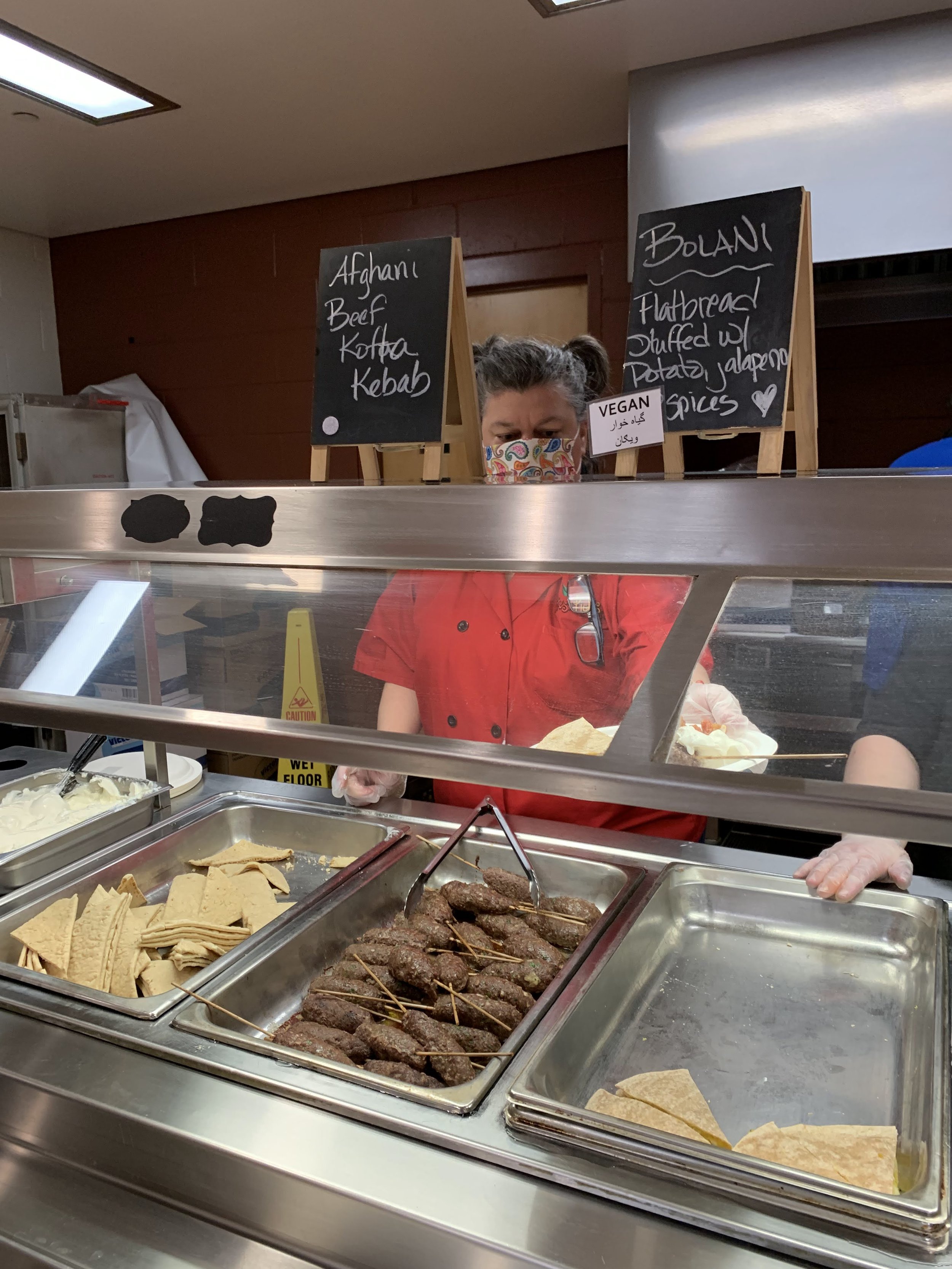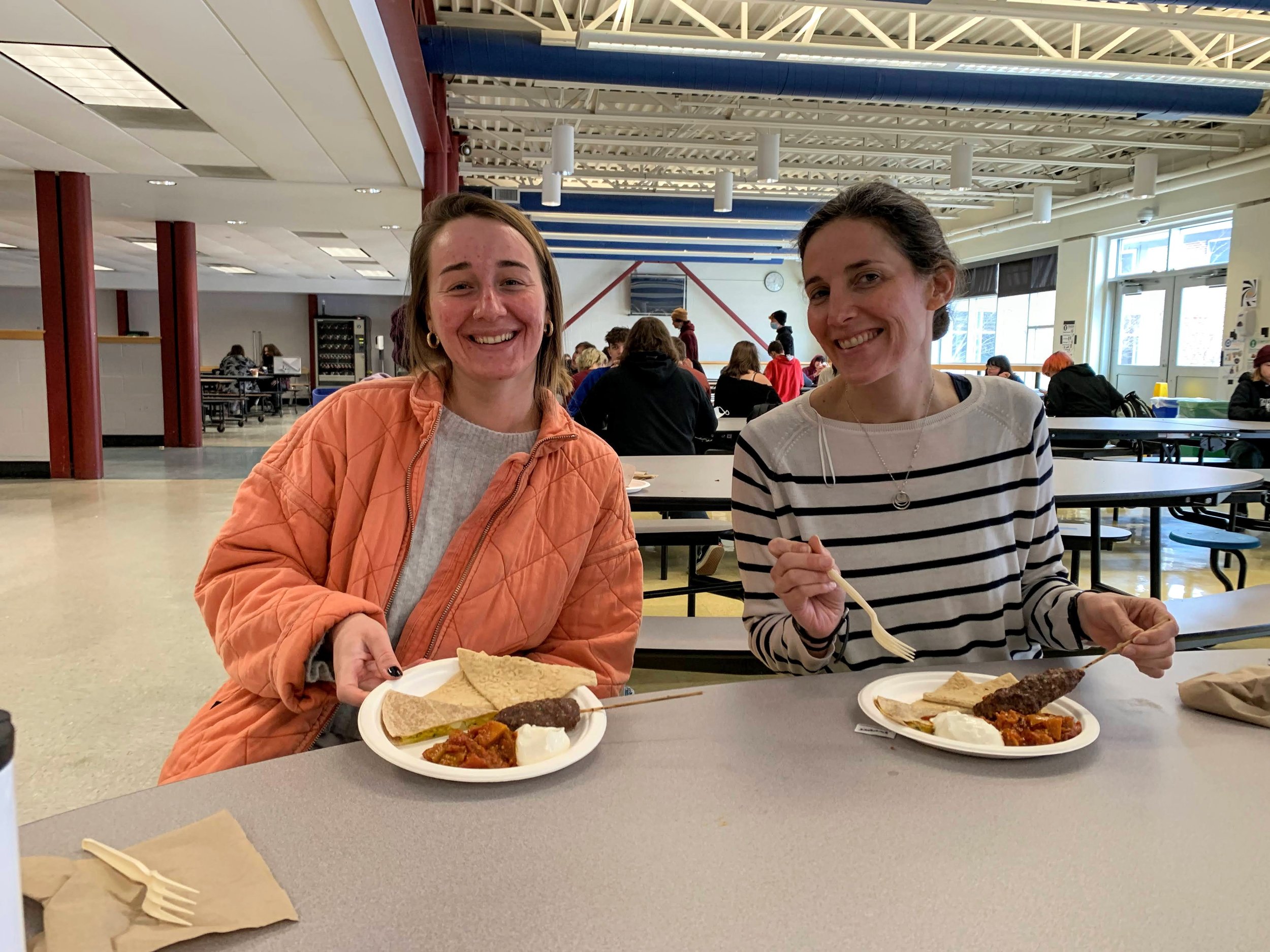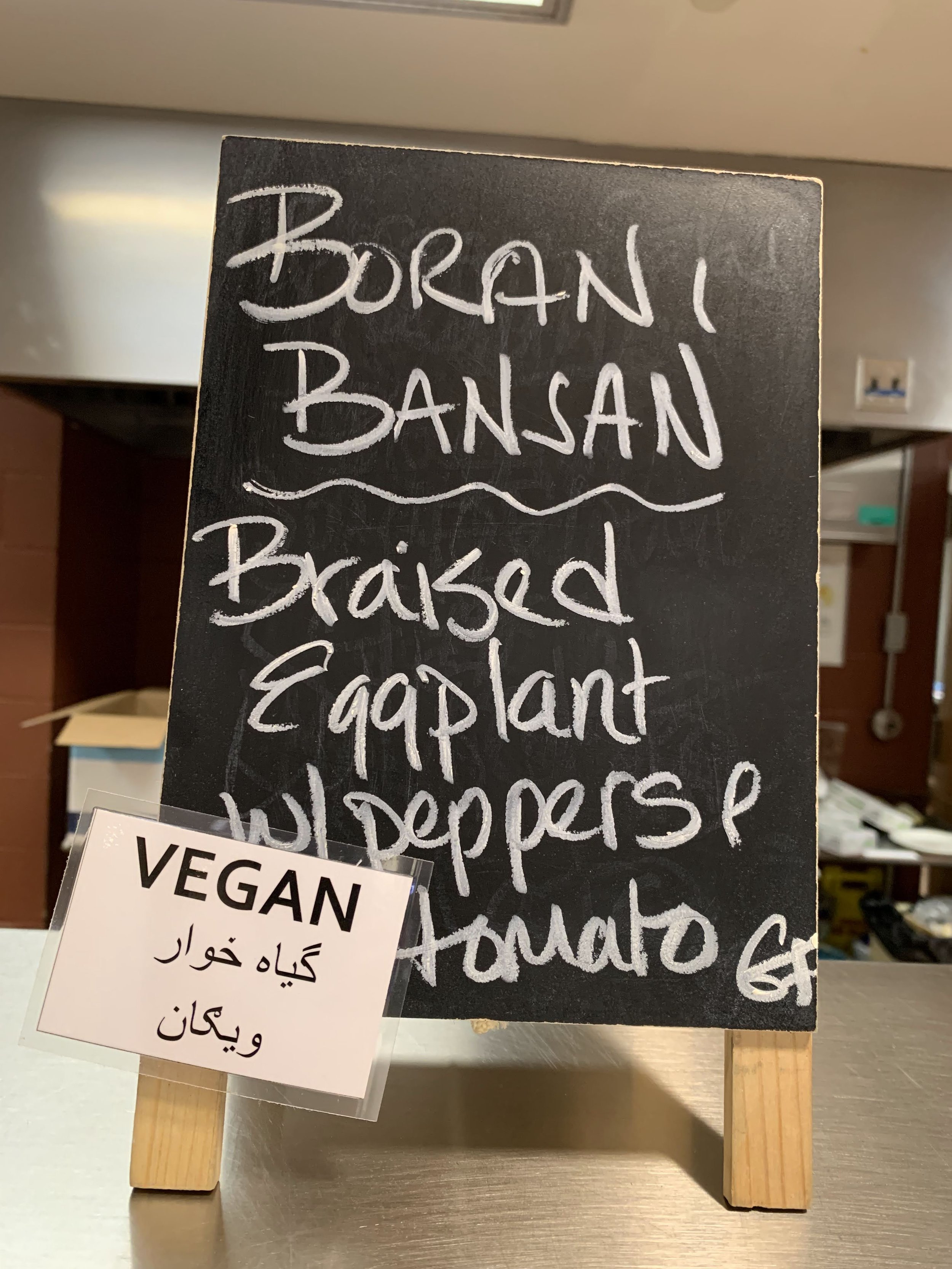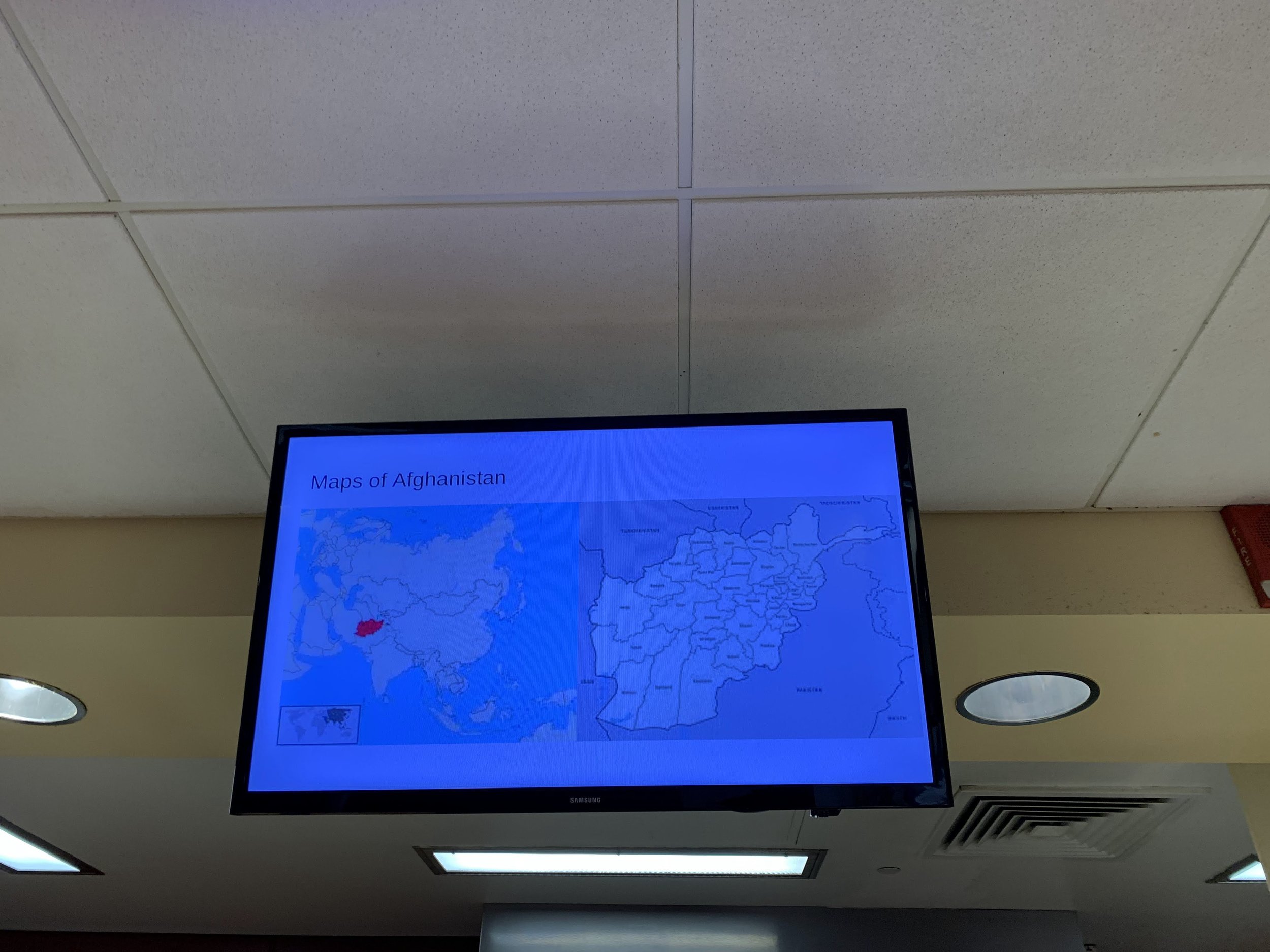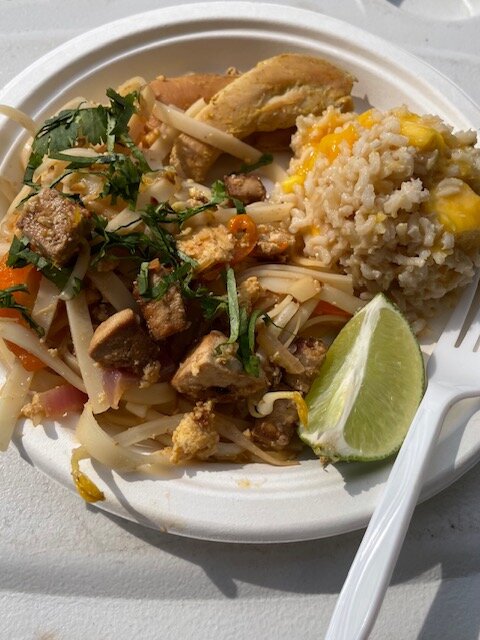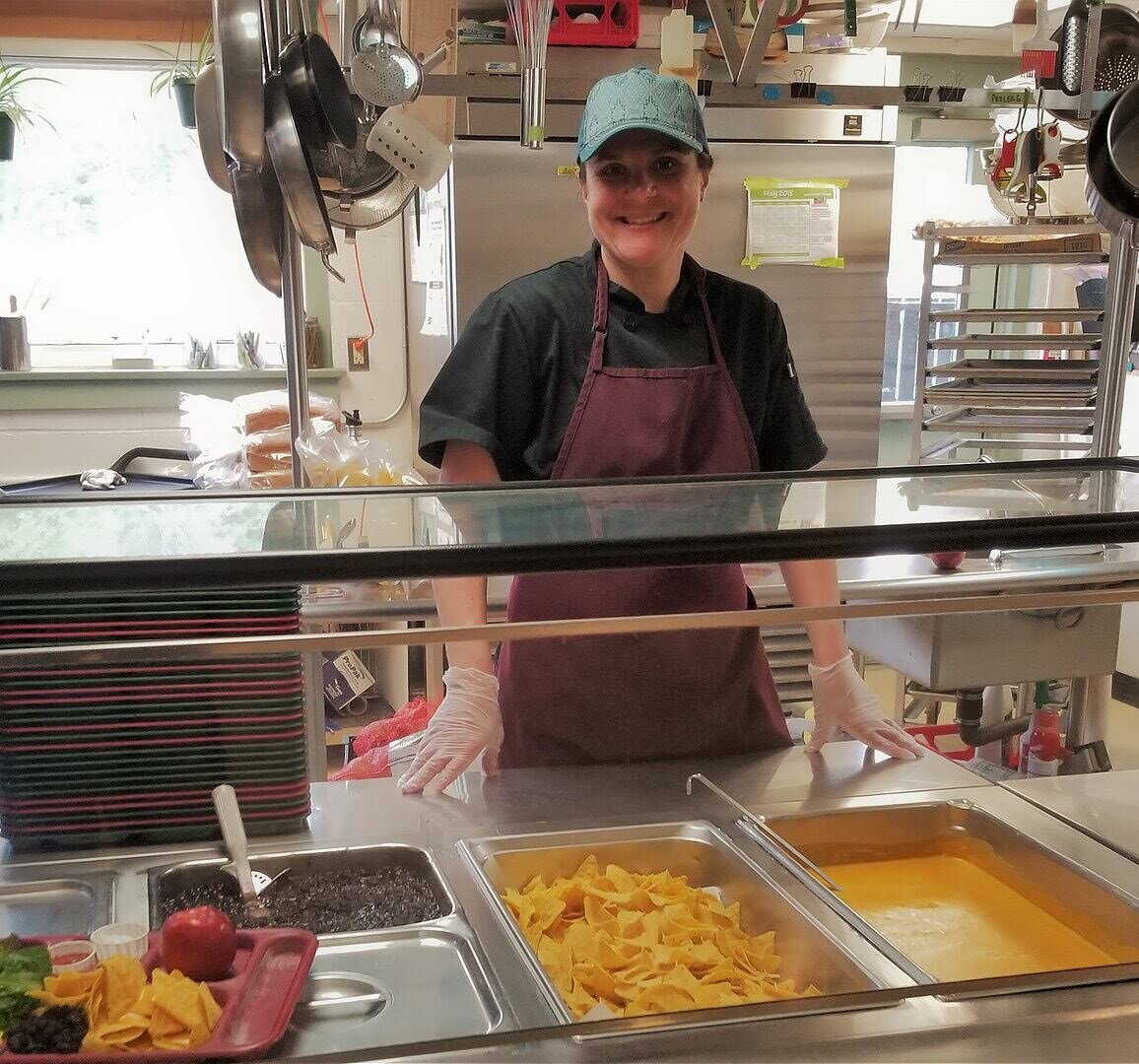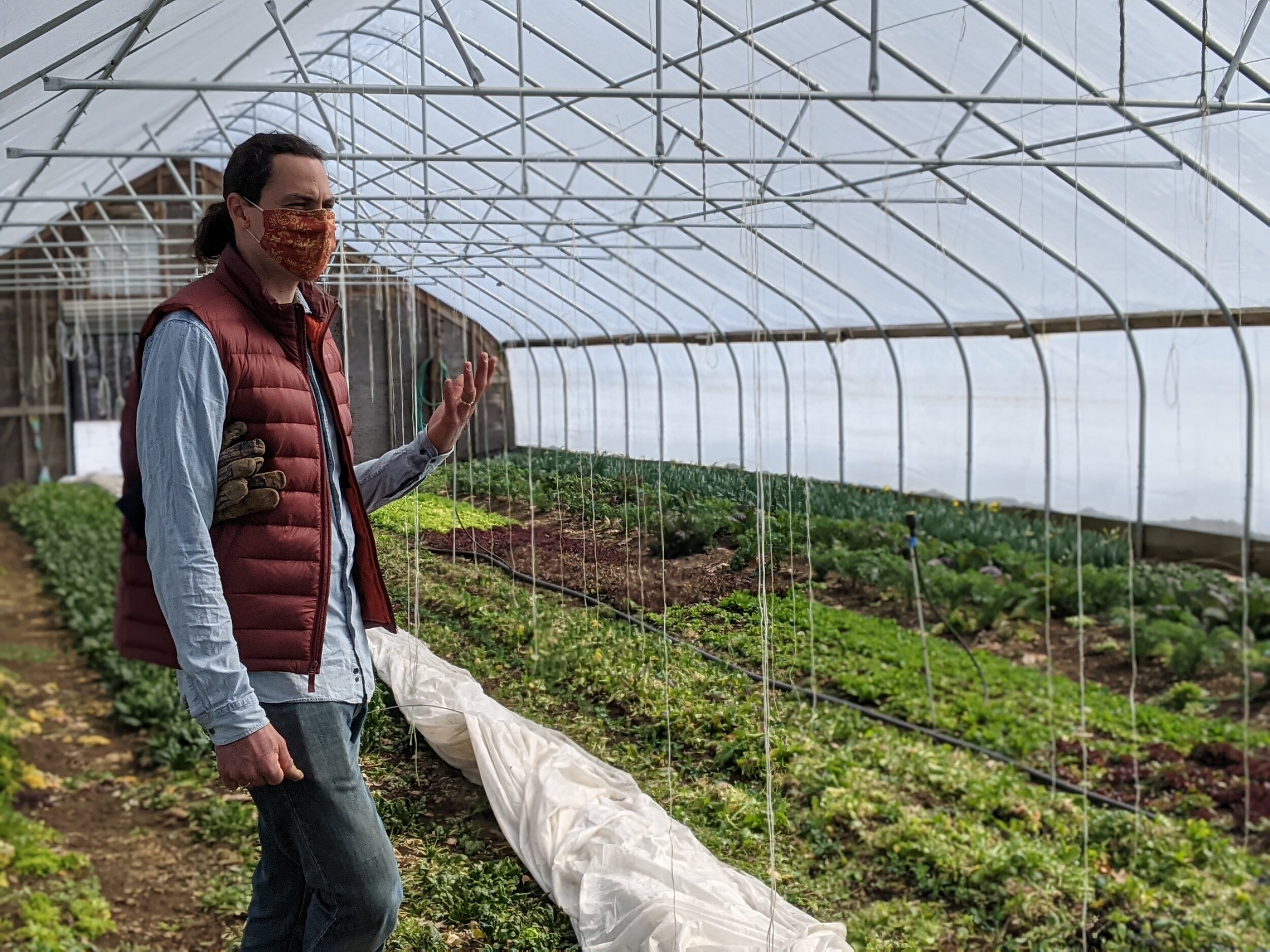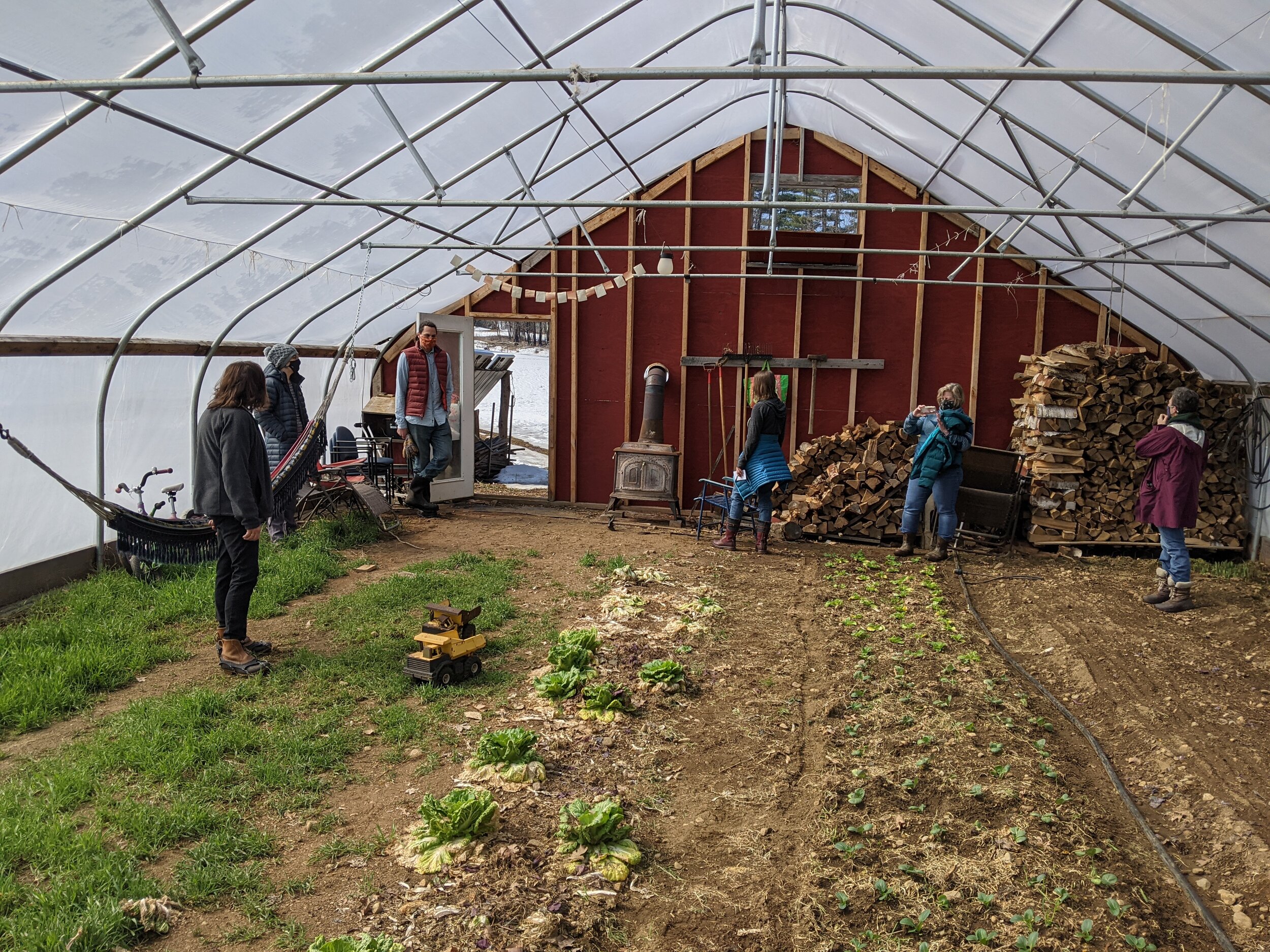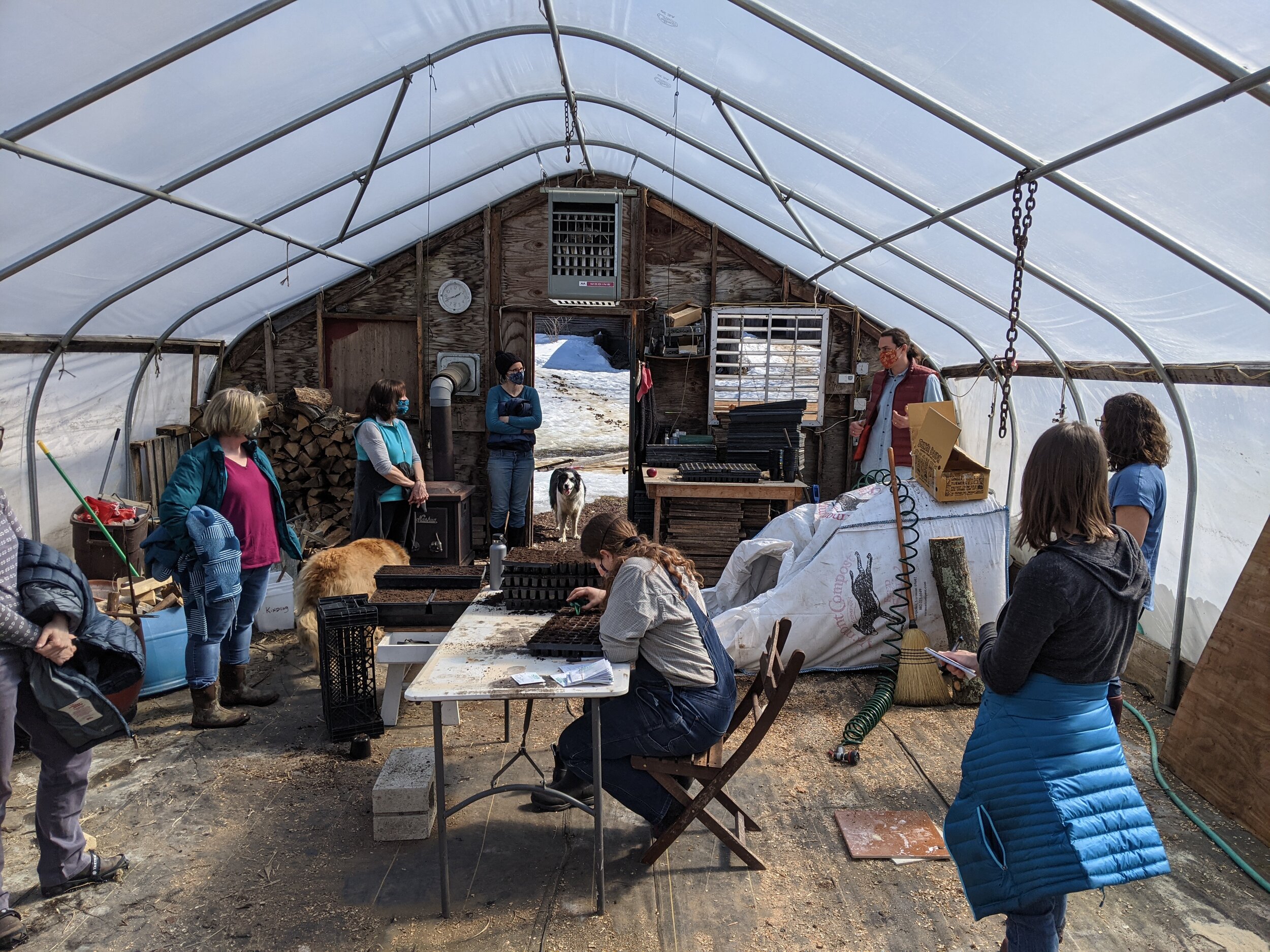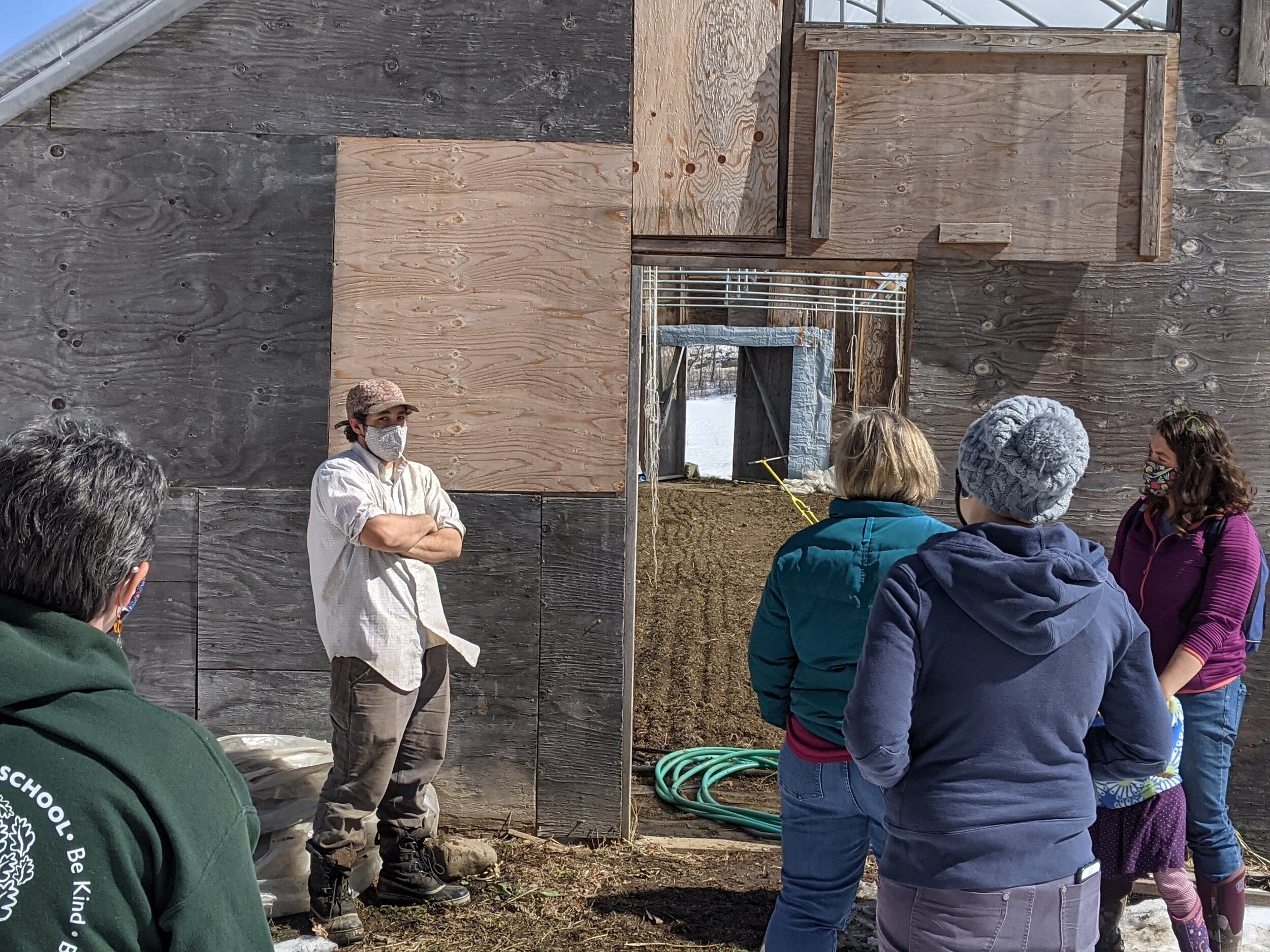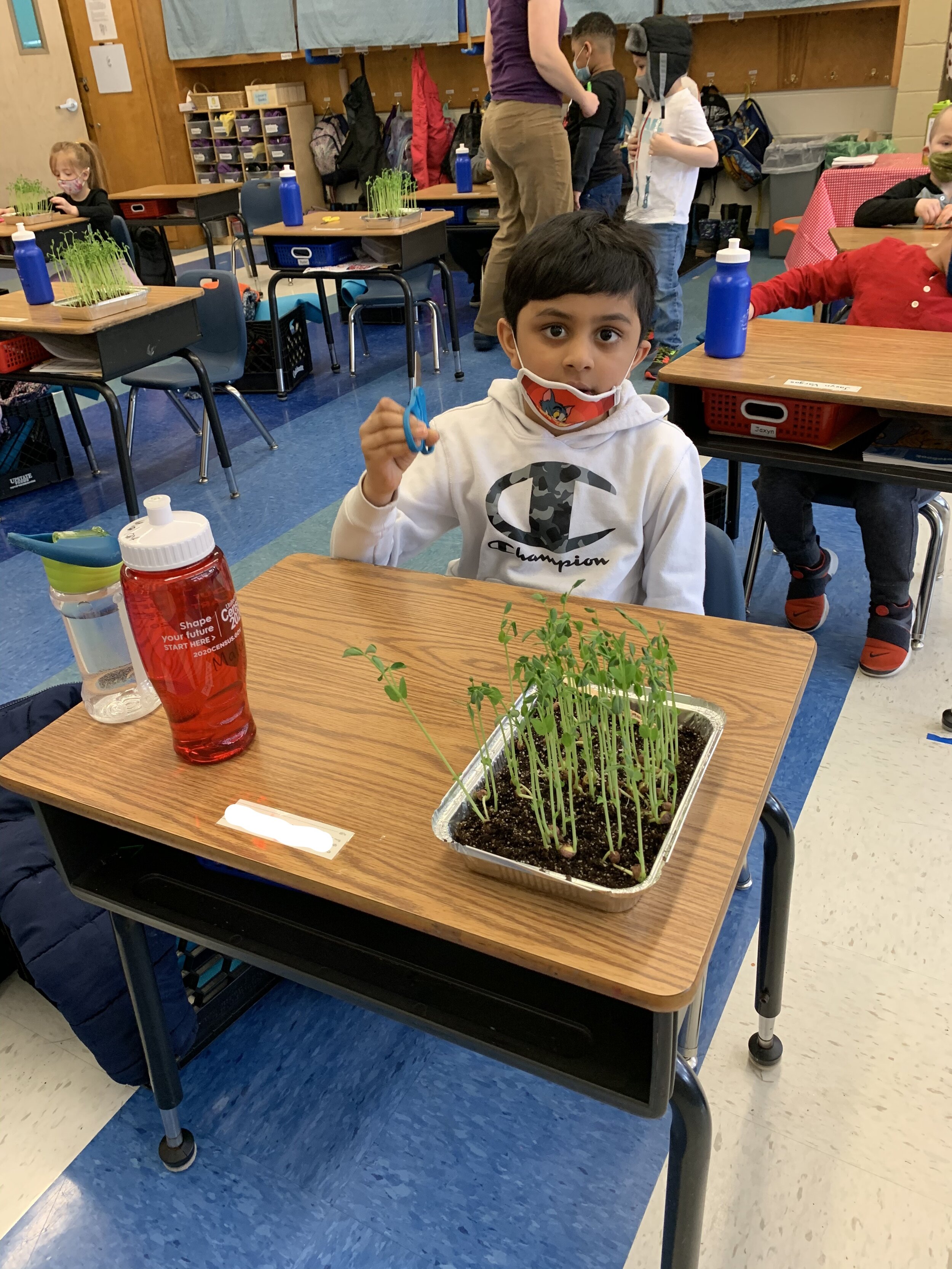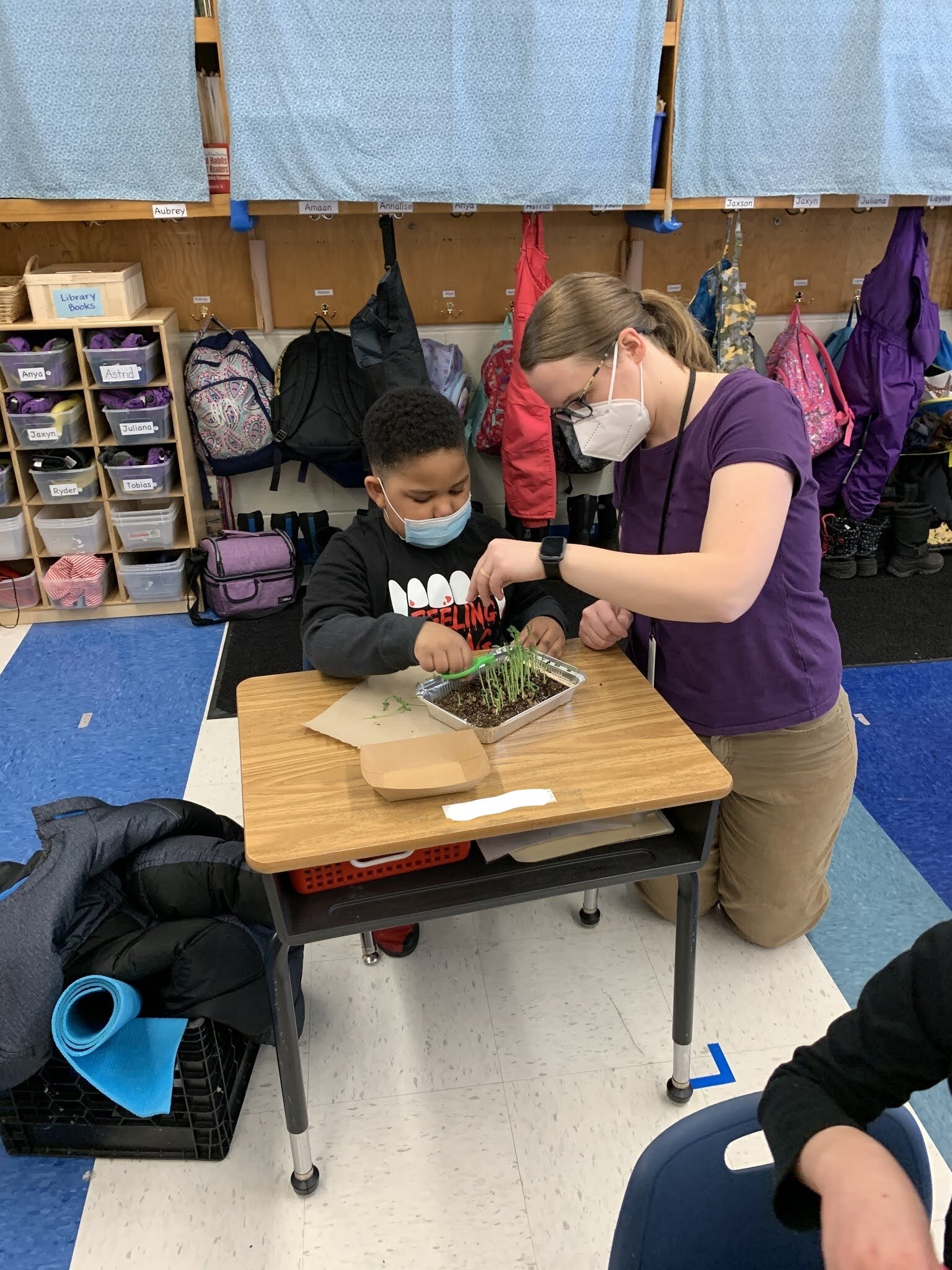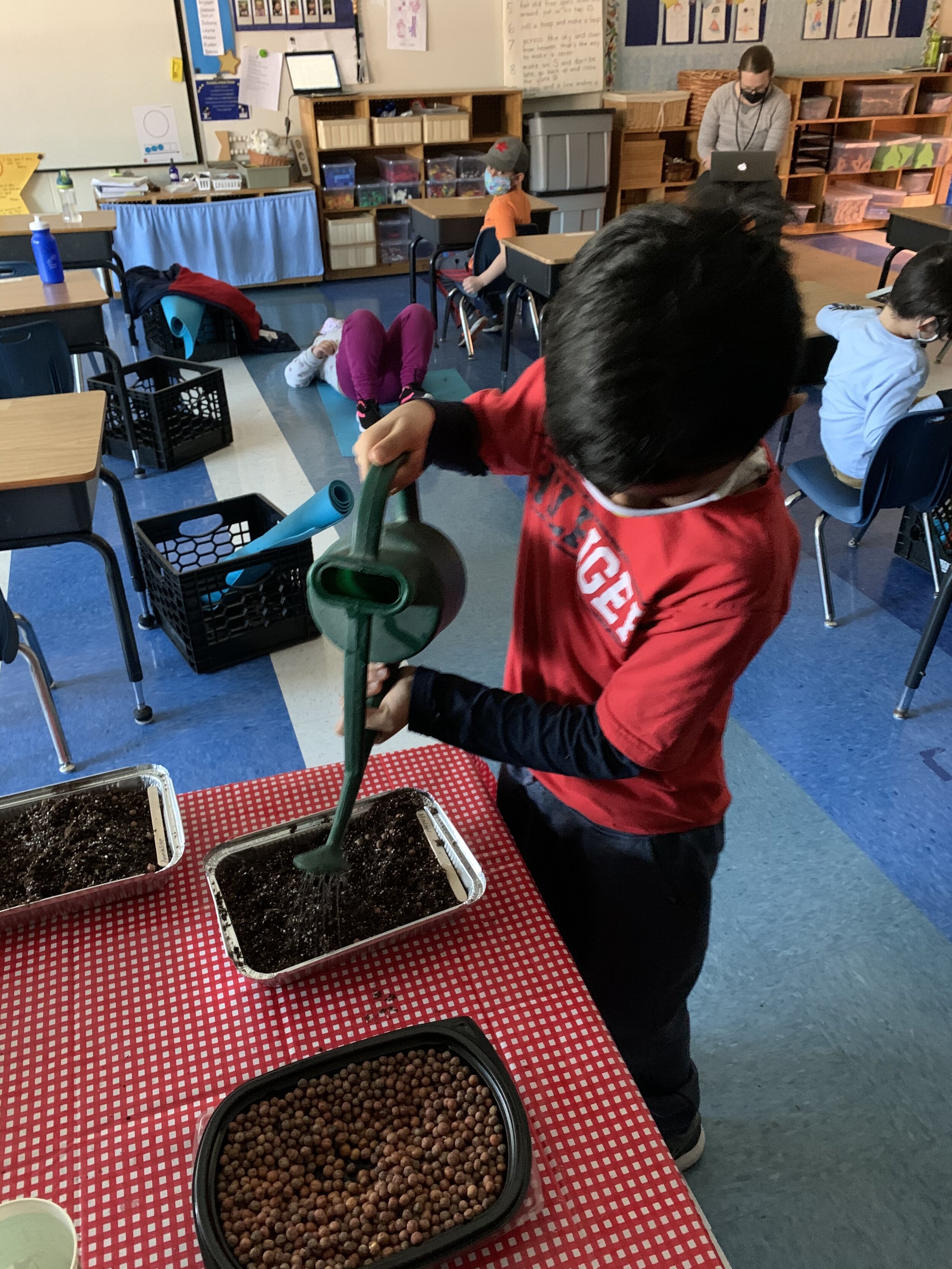Last spring, while teachers, students, and families were making the difficult shift to remote learning, School Nutrition Professionals continued to work in person in school kitchens, making thousands of meals for youth in our community. They faced the anxiety of working in person while so many others were sheltering at home, the fear that they or their loved ones might be infected, or that they would spread the virus in their workplace. Steve Napoli is the head custodian at Putney Central School and was part of the core team working in the kitchen to get meals out in those early days. Napoli commented that it felt “eerie” at the start, but knowing they had to get meals out to take care of the community was essential.
Food Connects conducted a series of interviews last spring with School Nutrition Professionals and other school staff working in kitchens in Windham County schools. We wanted to learn more about the effects of the pandemic on their work and how they were coping with challenges such as consolidating efforts into centralized kitchens, making the switch to unitized meals, managing childcare as working parents, and keeping spirits up during challenging times. Their responses inspired us.
Many changes needed to happen quickly when school kitchens made the switch to delivering meals remotely. According to Steve Hed, Food Service Director at Putney Central School, “The whole meal preparation system changed. It got crunched into a shorter period of time.” Along with the crunch of preparing meals in time to be delivered to families by bus, the packaging requirements shifted as well. Ariane Lavoie, also of Putney Central School, said it best: “Less kids, more packaging!”
Schools with salad bars like Putney Central and Central Elementary School in Bellows Falls noticed a difference. Erica Frank, Site Manager at Central School, said, “We got a salad bar going in 2019, and it really took off. We had so many options, and it was so fun. It helped the kids try new things, and we don’t have that this year.” On the other hand, eliminating the salad bar simplified food prep, which helped free up kitchen staff to meet additional individual packaging requirements.
The challenge of finding foods that could be pre-packaged easily and travel well allowed schools to try out new recipes. Steve Hed reported that they’re trying new things in the kitchen, “like a gluten-free, vegan quinoa salad with garbanzo beans for protein, and all kinds of veggies.” They also added a Peruvian recipe for black bean and rice burritos, both of which have been “a big hit.”
With the switch to Universal Meals for all students, Food Service Directors’ paperwork has decreased. However, last spring, developing the meal delivery system added a brand new challenge to the job, including mapping out routes to efficiently deliver food to families throughout the school district.
When asked what kept them going, School Nutrition Professionals spoke passionately about community food security needs and the importance of feeding their students. The physical act of going to work helped keep their spirits up as well. “It keeps me going to have something to do every day when I wake up in the morning, someplace to go,” said Linda Griffin, who works in all 3 Brattleboro elementary schools. “I’m not the kind of person who can sit around doing nothing. Having this job has definitely saved me from going stir crazy.”
Thinking about their biggest challenges, most spoke about missing the students. Academy School’s lead cook, Jasmine Star Nightingale, summed it up perfectly, with tears in her eyes, saying, “My biggest challenge is not seeing the children. It is very painful. They're all just wonderful kids, and just seeing them smiling every day...I miss that!”
Many changes happened quickly, and it was a challenge to adjust. Lori Reynolds normally works at Dummerston School, serving meals to 80-100 students each day. When schools closed, Reynolds started reporting to work daily in the centralized kitchen at Academy School, where meals were being prepared and packaged for multiple schools in WSESD. She was in charge of the alternative meals—approximately 28 daily orders for gluten-free, dairy-free, vegetarian, and/or vegan meals. “I'm learning new things, which is a little bit challenging for me, but I’m doing it!” said Reynolds. She paid acute attention to detail to fulfill these orders, which she said “got my brain going very quickly” first thing in the morning.
Another challenge for School Nutrition Professionals with children was managing childcare and supporting remote learning while working in the kitchen during the day. Jill Harnish from Oak Grove School described the challenges faced by many working parents, saying, “It’s hard because my youngest is a senior this year, and he’s in special education. He’s got homework to do, so when I leave work, I have to go home and help him with his homework because he won’t do it when I’m not there.”
Community support helped keep everyone going, both in the form of additional school staff and community volunteers coming in to help the kitchens and in community expressions of gratitude for the invaluable work of School Nutrition Professionals. Nancy Gagnon is the office clerk at Putney Central School. When schools closed, she began working in the kitchen regularly, helping prep food and pack meals. When asked about community support, she responded by saying, “One of the biggest things the community is doing is showing appreciation for the effort that this whole team of people have provided. We've been getting some feedback from families...it buoys you and makes you really feel like your efforts are being appreciated. There’s a back and forth, connecting with families and knowing that they're happy with the food they're getting, and you feel happy that you're doing it.”
Many people mentioned the satisfaction they get from knowing that they are feeding children who need it, and they are proud of the quality of the food they make. Mary Beth Peterson is a kindergarten paraeducator at Putney Central School, and she helped out regularly in the school kitchen during the spring when her students were fully remote. Working in the school kitchen gave her a new perspective, and she proudly stated, “The quality of the food and the personalization that our food service staff put into what they do is phenomenal. The quality of the food is WOW; I can't believe it! The diversity and the kid-friendly food, it's quality stuff.” Thristan Coke from Bellows Falls Union High School said, “I am a firm believer that kids must be fed, no matter what. What’s going on is not their fault, and they shouldn't be punished for anything. So I take pride in that...I know what my kid is like when he’s hungry; I can’t imagine anybody else’s, so I am happy to feed them.”
We also asked what brought these folks joy in their lives and what they were grateful for. Jess Boucher of Dummerston School shared that some of her joy comes from “seeing smiling kids, happy kids, and when the kids tell me they like the food and how good of a job I’m doing.” On the topic of gratitude, people were universally grateful for their families, health, and jobs. Erica Frank from Central School spoke specifically about her appreciation for her co-workers, saying, “I’m grateful for the team who comes together at this time to make it work, no drama and just getting the job done. People coming together and bringing lots of different skill sets has been really nice.”
We are grateful for these unsung heroes in our community who nourish children in our community each day. The complete series of interviews can be found here: https://www.foodconnects.org/news-2/tag/Who+Feeds+Our+Kids



